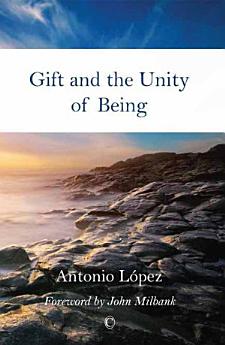Gift and the Unity of Being
Antonio Lopez
ก.ย. 2014 · James Clarke & Company
eBook
368
หน้า
family_home
มีสิทธิ์
info
reportคะแนนและรีวิวไม่ได้รับการตรวจสอบยืนยัน ดูข้อมูลเพิ่มเติม
เกี่ยวกับ eBook เล่มนี้
Starting from both our originary experience of being given to ourselves and Jesus Christ's archetypal self-donation, 'Gift and the Unity of Being' elucidates the sense in which gift is the form of being's unity, while unity itself constitutes the permanence of the gift of being. In dialogue with ancient and modern philosophers and theologians, Lopez offers a synthetic, rather than systematic, account of the unity proper to being, the human person, God, and the relations among them. The book shows how contemplation of the triune God of love through Jesus Christ in the Holy Spirit allows us to discover the eternal communion that being is and to which finite being is called. It also illustrates the sense in which God's gratuitousness unexpectedly offers thehuman person the possibility to recognize and embrace his origin and destiny, and thus he is given to see and taste in God's light the ever-fruitful, dramatic, and mysterious positivity of being.
ให้คะแนน eBook นี้
แสดงความเห็นของคุณให้เรารับรู้
ข้อมูลในการอ่าน
สมาร์ทโฟนและแท็บเล็ต
ติดตั้งแอป Google Play Books สำหรับ Android และ iPad/iPhone แอปจะซิงค์โดยอัตโนมัติกับบัญชีของคุณ และช่วยให้คุณอ่านแบบออนไลน์หรือออฟไลน์ได้ทุกที่
แล็ปท็อปและคอมพิวเตอร์
คุณฟังหนังสือเสียงที่ซื้อจาก Google Play โดยใช้เว็บเบราว์เซอร์ในคอมพิวเตอร์ได้
eReader และอุปกรณ์อื่นๆ
หากต้องการอ่านบนอุปกรณ์ e-ink เช่น Kobo eReader คุณจะต้องดาวน์โหลดและโอนไฟล์ไปยังอุปกรณ์ของคุณ โปรดทำตามวิธีการอย่างละเอียดในศูนย์ช่วยเหลือเพื่อโอนไฟล์ไปยัง eReader ที่รองรับ






